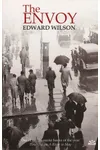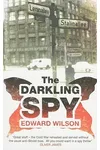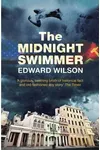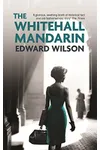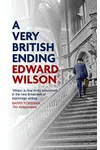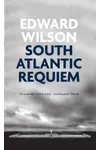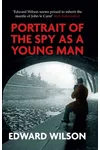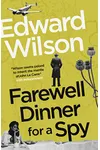Picture a Baltimore-born Vietnam War veteran who swapped the battlefield for the shadowy world of Cold War espionage fiction—meet Edward Wilson! Now a celebrated British author, Wilson’s gripping novels, led by the enigmatic MI6 agent William Catesby, weave historical intrigue with heart-pounding suspense, earning him a devoted following across the Atlantic.
Wilson’s unique journey—from American soldier to UK citizen and master storyteller—infuses his work with authenticity and a sharp anti-establishment edge. His tales don’t just thrill; they challenge readers to question power, loyalty, and the murky morals of espionage.
The Making of Edward Wilson
Born in Baltimore, Maryland, Edward Wilson grew up in a working-class family, raised by his mother after his Anglo-Indian father, a merchant sailor, passed away when he was just six months old. Educated at Baltimore Polytechnic Institute and the University of Virginia on an ROTC scholarship, Wilson’s life took a dramatic turn when he was deployed to Vietnam in 1968 as an officer in the 5th Special Forces. His experiences in the war, coupled with disillusionment with U.S. foreign policy, led him to renounce his American citizenship and settle in the UK in 1974. There, he worked as a teacher for three decades before turning to writing in the early 2000s, channeling his complex worldview into spy fiction.
Edward Wilson’s Unforgettable Stories
Wilson’s novels, published by Arcadia Books, are a masterclass in Cold War espionage, blending meticulous historical detail with morally complex characters. His flagship series follows William Catesby, a Lowestoft-born MI6 agent whose sharp intellect and rebellious streak echo the grit of John le Carré’s George Smiley. In The Envoy (2008), Catesby navigates 1950s London, entangled in CIA-MI6 rivalries and nuclear secrets. The Darkling Spy (2010) sees him posing as a defector in 1956 Berlin, unraveling a web of betrayal amid the Hungarian Uprising. The Whitehall Mandarin (2014) spans the 1950s and 1960s, tackling nuclear espionage and political scandals from London to Hanoi. South Atlantic Requiem (2018) places Catesby at the heart of the Falklands War, brokering peace against political machinations.
Wilson’s style is cerebral yet accessible, marked by sharp prose and a knack for blending real historical figures—like Chairman Mao or Soviet spy Anthony Blunt—with fictional intrigue. His anti-establishment lens and focus on class tensions set him apart, making his stories resonate with readers who crave intelligence over action-packed clichés.
Why Edward Wilson Matters
Edward Wilson’s work transcends genre, offering a lens into the Cold War’s moral ambiguities and the human cost of espionage. His novels have earned critical acclaim, with reviewers likening him to le Carré for his nuanced storytelling and historical depth. By rooting his narratives in real events, Wilson invites readers to reconsider history, from Vietnam to the Falklands, while Catesby’s outsider perspective mirrors Wilson’s own journey as an expatriate. His growing readership in the UK and U.S. proves that thoughtful spy fiction still captivates, cementing his place as a literary voice in espionage.
- Born: Baltimore, Maryland, date undisclosed
- Key Works: The Envoy, The Darkling Spy, The Whitehall Mandarin, South Atlantic Requiem
- Awards: Nominated for the Commonwealth Writers Prize for A River in May
Ready to dive into the shadowy world of Cold War spies? Snag The Envoy and discover Edward Wilson’s thrilling, thought-provoking espionage saga!
